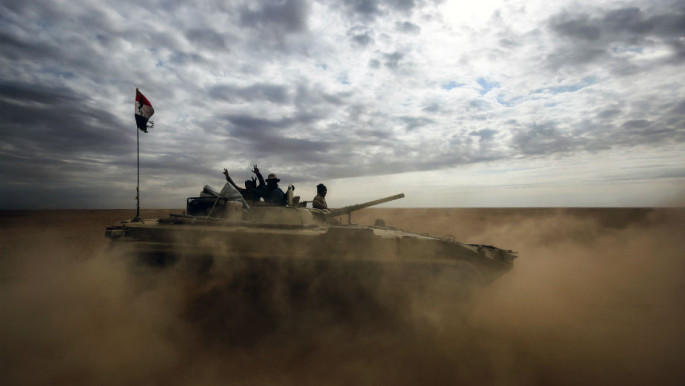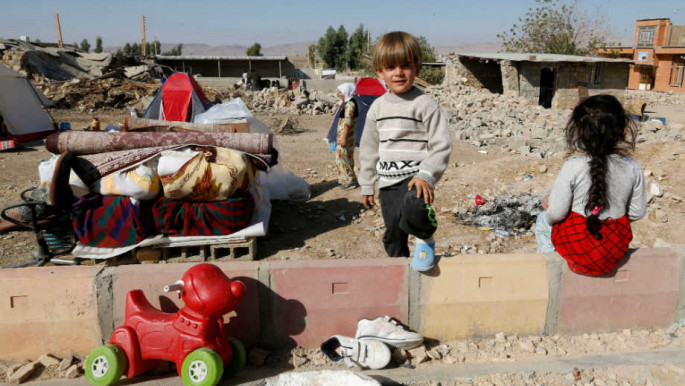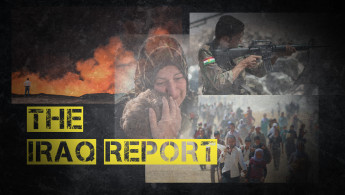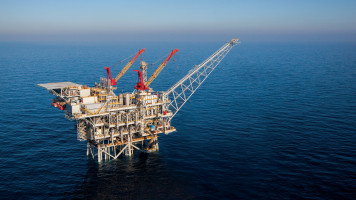The Iraq Report: US may have violated law on child soldiers
Click here to receive The Iraq Report each week in your inbox
The United States may have violated federal laws by omitting Iraq from its blacklist of countries that recruit child soldiers. State Department officials have expressed their deep concern that Iraq is receiving US funding and military equipment even though Baghdad is accused of turning a blind eye to the use of child soldiers by official Iraqi military outfits.
Although the Islamic State group has been removed from all urban territories in Iraq, it is still a menace, having conducted at least two large-scale bombings within a week, including striking the capital, Baghdad. This comes as the United Nations expresses concern that next year’s general election could be in doubt if internally displaced people are not returned to their homes to have their votes counted without being under pressure in refugee camps.
State-sanctioned use of child soldiers in Iraq
US State Department officials have raised wide-ranging objections against Secretary Rex Tillerson’s decision to omit Iraq from a list of countries who actively recruit child soldiers for use in combat. First reported by Reuters last week, an internal ‘dissent’ memo penned on July 28 shows the scale of the objections Washington’s top diplomat faces from his own department.
According to the memo, Tillerson’s move to omit Iraq, Myanmar and Afghanistan from the blacklist last summer was at odds with recommendations from regional bureau chiefs and internal lawyers.
“Beyond contravening US law, this decision… has weakened one of the US government’s primary diplomatic tools to deter governmental armed forces and government-supported armed groups from recruiting and using children in combat and support roles around the world,” the memo reads.
By removing Iraq from the blacklist, Tillerson also removed one of the key legal roadblocks that may have prevented US arms and funding from being poured into Iraq during its fight against IS. Tillerson defended his decision, stating that the countries in question had made efforts to crack down on the recruitment of children as soldiers.
However, the memo made it clear that US officials still believed the omission of countries such as Iraq to be a violation of federal law, as the criteria for de-listing did not depend on a country’s efforts, but on actually ceasing the practice of using child soldiers.
 |
| An Iraqi tank crew flashes 'V for Victory' signs as they speed through the Anbar desert [AFP] |
While IS is guilty of using child soldiers through its “Cubs of the Caliphate” programme and other recruitment and radicalisation tools, it is a terrorist organisation and a non-state actor. The Iraqi government, on the other hand, is bound by international laws and conventions, and that includes its armed forces.
Prime Minister Haider al-Abadi formally recognised the Shia-dominated Popular Mobilisation Forces paramilitaries as a part of the Iraqi Armed Forces in July. Abadi made the decision despite reports from 2015 showing how the PMF had set up training camps for children, as well as a UN Security Council report blaming both IS and the PMF for using children in war. Just before the Mosul operation, Human Rights Watch again said the PMF was recruiting children to fight against IS.
Although Iraq does not accept the jurisdiction of the International Criminal Court, it is a party to international statutes and conventions. Protocols I and II of the Geneva Convention specifically bans the recruitment of children for war, and the ICC considers such breaches of these protocols to be a war crime.
IS terror attacks intensify
Iraq launched an operation to clear IS out of the desert area near the shared border with Syria last Thursday and, by Sunday, had declared that Baghdad controlled almost half of Anbar governorate’s desert. However, the Anbari desert has very little in the way of road infrastructure and it is very easy for insurgents to go unnoticed, as the US army discovered between 2003 and 2011.
IS militants have shown that they are far from out of the game, as they have conducted two deadly bombings in what were supposed to be secured areas of Iraq in the past week alone.
The first attack struck the ethnically mixed town of Tuz Khurmato on Tuesday last week. A suspected IS car bomber ploughed into a busy vegetable market, injuring dozens, before detonating his explosives and killing at least 21 Iraqis.
The second attack came just a week later in the capital, Baghdad, when men dressed in the uniforms of the Iraqi Security Forces attacked the Nahrawan area, south-east of the capital’s centre. Local media sources claimed that up to 17 Iraqis were killed, with a further 33 injured. Through its Amaq “news agency”, IS later claimed responsibility for the attack, taking credit for killing 35 PMF militiamen.
The intensifying rates of IS’ insurgent attacks come just as the Iraqi government claimed the death of Iyad Hamid al-Jumaili, the group’s second-in-command, and approximately 40 of his men, in an airstrike on the desert area near Syria. The attacks also follow the loss of IS’ urban strongholds, and the militant group’s reversion to low-cost asymmetric warfare.
Marginalised communities place forthcoming elections in doubt
Jan Kubis, the special representative for the UN secretary-general in Iraq, has raised concerns that Iraq’s forthcoming elections in May 2018 may be cast into doubt if Baghdad did not urgently address the issue of IDPs and refugees being returned to their homes.
In his briefing to the UN Security Council, Kubis highlighted the fact that there were still “security concerns, notably in the areas of returns of IDPs”.
“I urge that these challenges are resolutely addressed in the months to come. Otherwise, holding elections when parts of Iraq remain insecure and large numbers of people, particularly from the Sunni communities, continue to be displaced could cast doubts over the inclusiveness and credibility of the elections and thus the acceptability of its results,” the UN official said.
 |
| An earthquake on the Iraq-Iran border left thousands displaced [AFP] |
Electoral problems marginalising entire communities have plagued Iraq since the US-led invasion toppled Saddam Hussein in 2003. In the most recent election, in 2014, then-Prime Minister Nouri al-Maliki went ahead with the poll despite the ongoing violence across many of Iraq’s six Sunni-dominated governorates, failing to take into account the millions of mainly Sunnis who could not cast their votes.
The move eroded trust in the Iraqi government as representative of all Iraqis, irrespective of creed or ethnic background. Baghdad must, this time, ensure IDPs and refugees are returned home, and their districts are granted security, before democratic elections are viable. Failure may lead to further discontent as many of Iraq’s Sunni Arabs feel they have nothing left to lose.
Iraq, Turkey move to further marginalise Kurds
On a regional level, Iraq has been cutting further deals with an unlikely ally – Turkey.
The Iraqi oil ministry said on Sunday that it was planning to build a new pipeline to pump oil from the resource-rich Kirkuk to Turkey’s Ceyhan, which lies close to the Yumurtalik sea port. The pipeline will replace part of the old Kirkuk-Ceyhan pipeline and will purposefully skirt around the three governorates that comprise the Kurdistan Region of Iraq to pass through the federal government-controlled Fish-Khabur border crossing.
Baghdad has also been cutting deals with its regional benefactor Tehran, having agreed last month to export up to 60,000 barrels of oil per day to Iran’s Kermanshah province. With both Ankara and Tehran in agreement over the lack of desirability of Kurdish independence both in their own countries and in that of their neighbours, both are looking to lock in economic gains arising out of this unlikely triumvirate.
However, it must be noted that Turkey benefited greatly from Kirkuk’s oil under the KRG and that Iraqi Kurdistan still remains one of its largest export markets for Turkish products. Although Ankara will continue to work alongside Baghdad and Tehran in marginalising Iraq’s Kurds as punishment for their independence bid, it will be mindful of its other economic priorities, and will either seek to acquire contracts from its new allies, or else keep inroads available to them with the Kurds.
After having controlled Kirkuk and its oil resources since 2014 after the federal government’s forces collapsed in the face of IS’ advance, the Kurdish Regional Government was hurled out of the northern city in less than a day in October. Since then, the KRG has seen its territory shrink rapidly as it withdrew its Peshmerga fighters from any direct confrontation against the Iraqi army and its allied PMF militants.
With the Iraqi constitutional court’s decision on the illegality of the referendum now being upheld by the republic’s Kurdish president, the KRG has never been weaker.
The Iraq Report is a weekly feature at The New Arab.
Click here to receive The Iraq Report each week in your inbox
Follow us on Twitter: @The_NewArab



